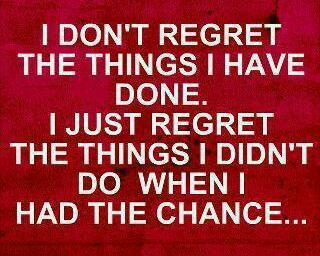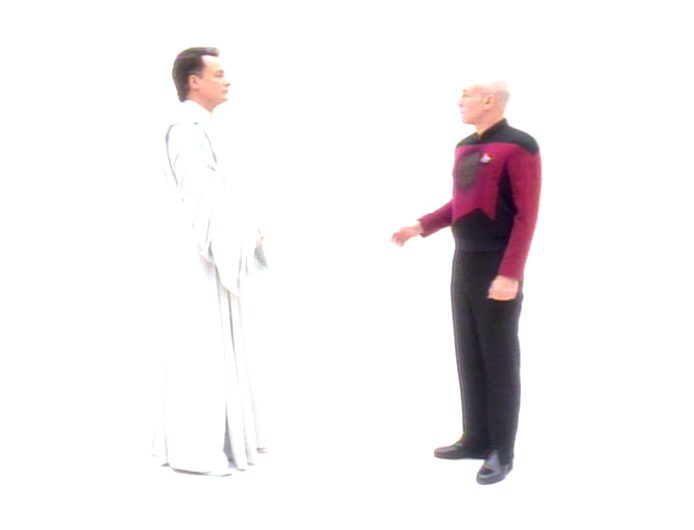Tapestry. It’s the title of one the most powerful episodes of Star Trek: The Next Generation. Captain Jean-Luc Picard gets to re-live his life and correct some of the ‘stupid mistakes’ he made in his youth. This time, he avoids confrontation, avoids risks and plays it safe. Later we see the outcome of his revised life, with the corrections: He’s become a dreary middle level officer plodding through a life of mediocrity and obscurity. We feel pity for the man he has become, in the shadow of his former greatness.
Ron Wayne
Have you ever heard of Ron Wayne? Probably not. Of course you’ve heard of Steve Jobs, and Steve Wozniak, co-founders of Apple – the platinum standard for entrepreneurial success stories.
Ron Wayne was the third founder of Apple. And the lesson from his story is equally as heartbreaking. He was experienced, having started a company or two in the past, and was older than the other 2 founders, being 41 at the time.
Thirty-five years ago, Ronald G. Wayne helped co-found the Apple Computer Company with two men 20 years his junior, Steve Jobs and Steve Wozniak — names that have since become synonymous with the personal computer revolution of the early 80s. For Wayne, however, it was a gig that lasted all of a dozen days, abruptly ending when he marched down to the Santa Clara County Registry Office to have himself stricken from the contract he’d authored. ( Two days in the desert with Apple’s lost founder, Ron Wayne )
Most entrepreneurs have a story or two about some cofounders who left during the earliest days of the company – whether from some fundamental disagreements or merely because the startup was too early for these cofounders to see any potential benefit in staying, and contributing. For the entrepreneur who toughs it out to make a go of it, these early cofounder exits are often painful. Like the pre-adolescent Ralphie in A Christmas Story, fantasizing a future where his parents regret punishing him by washing his mouth out with soap – entrepreneurs sometimes have a similar fantasy: A future where their company is wildly successful and their cofounders regret ever leaving so early. While Steve Jobs and Wozniak never seemed to have suffered as much as many bootstrapped entrepreneurs, they did enjoy at least one aspect of the entrepreneur’s utopian fantasy:
… basically Wayne got a 10 percent stake in Apple upon the formation of the company, only to sell it back less than two weeks later for $800 (he later got another $1,500 for his agreement to forfeit anyclaims against Apple). A 10 percent stake in Apple today would make someone a billionaire many times over today. (Apple Co-founder Ron Wayne Explains Why He Quit After 12 Days.)
And worse …
Wayne’s name has popped up in the national news twice in recent months, first with the passing of Steve Jobs, and then with the well-timed appearance of an original Apple contract, dated April Fool’s Day, 1976, signed by Jobs, Wozniak and Wayne, which fetched a staggering $1.6 million at auction – roughly 1,000 times the amount Wayne received to forfeit all claims to the company.
Risk and the critics
In the entrepreneurial universe it’s a constant mantra that we should be tolerant of risk and failure and part and parcel of the path to success. And yet, how often do we find ourselves in the company of someone smugly proclaiming an idea or venture won’t be successful – for a variety of reasons that all sound the same: “Others are already doing it”, “The founders don’t have the experience or skills” or “What’s stopping Google or Facebook from duplicating your idea?”
Of course they sound so smart while they are criticising new ideas or ventures. I suppose it is easy to beat up on any newborn – but it’s rather cruel isn’t it? In the end, there is such a thing as Karma.
Risk and failure are entrepreneurial rites of passage – to the point where bragging about past failures is a badge of honor. How often have you heard of a successful entrepreneur brag about the times that they avoided failure? Not often. Why? Because it’s easy to avoid failure. Simply don’t take a risk. Avoid risks: In fact avoid taking actions altogether.

There is no Tragedy of Risk, only Tragedy of Regret
Watch the video interviews of Ron Wayne (now in his 70’s). While he seems to be at peace with his life, one can’t help but feel sad. His decision to quit Apple at the very beginning was probably such a mature and informed decision, as opposed to an act of cowardice. Actually it was pure risk-aversion. But look at the outcome. Sure, there are others out there who might regret staying with a failed startup, and even going bankrupt in the process. Most seem to bounce back from those kinds of failures – even to the point of bragging about them; it’s the stuff that folklore is made from. But if you’re one of those who turned away from a great success – well, there’s a place in history books for them too: The same books written about the investors who turned down the first telephone, first television or about the man who turned down the Beatles. What was his name again?
Tapestry
Watching the interviews with Ron Wayne is downright depressing. One can’t help but think “I hope I never end up like that” – sitting on the sidelines while the opportunity I avoided became one of the most successful companies of all time. For a more inspirational view, watch the Star Trek TNG episode, Tapestry. Picard is given the chance to see how his life might have turned out if he had avoided some of the risks and failures in his life. He turns out much like Ron Wayne. Luckily he is given another chance. Most of us don’t get a second chance. For those pondering whether it’s worth it to struggle with a startup and its risks – consider how you would feel if you passed up on being a cofounder of the next Apple, Google or Facebook. For true entrepreneurs, they would rather have their attempts – successes and failures – be part of history books rather than merely be mentioned in the footnotes.

